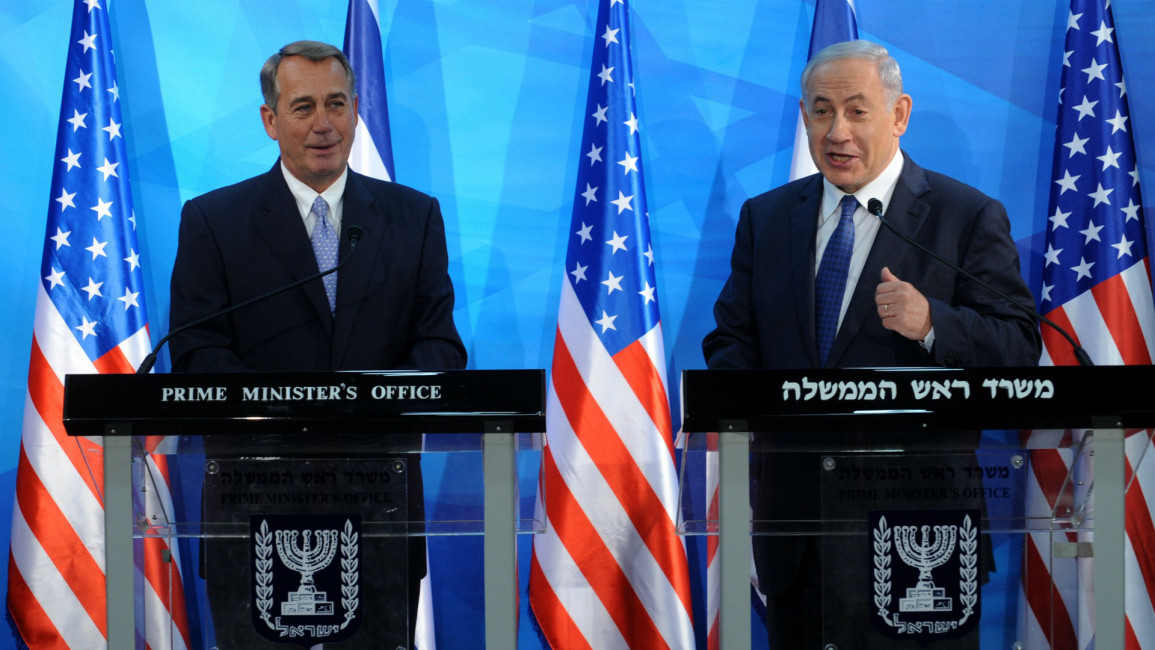
The US and Israel: an international domestic dispute?
It is no secret that the US is much like Israel's older brother.
Since Israel's independence in 1948, the US has been its strongest supporter and ally. Israel, as many know, receives the greatest amount of military aid from the US, more than $3 billion annually.
Regardless of what Israel does, from its killing of civilians, its imprisoning of children, and ever-expanding settlements, the US has always been there to offer its support and protection. However, given recent events, family dynamics might be changing.
On 17 March 2015, Israelis headed to the polls and decided to keep Prime Minister Binyamin Netanyahu, of the right-wing Likud party, in office.
| In an effort to rally right-wing support, Netanyahu publicly warned that the Arab Israeli voters were 'coming out in droves'. |
It is not his recent win that is causing great controversy, rather it is the actions and words of Netanyahu that has created great debate and led to a "strained" relationship with the Obama administration.
It has been reported that President Obama took nearly two full days before making the congratulatory phone call to Netanyahu, as the administration was still reeling from the leader's pre-election comments.
US concerns
On the eve of the elections, in an effort to rally right-wing support, Netanyahu publicly warned that the Arab Israeli voters were "coming out in droves".
Along with this he made it clear publicly that, if re-elected, he would make sure a Palestinian state would never happen. However, since his win, Bibi has tried to backtrack from his earlier statements, saying that he still supports a two-state solution - but that it is impossible to achieve, given the reality of the situation.
In response to the pre-election comments, White House press secretary John Earnest stated "the United States and this administration is deeply concerned about rhetoric that seeks to marginalise Arab Israeli citizens, it undermines the values and democratic ideals that have been important to our democracy and an important part of what binds the United States and Israel together".
According to a senior administration official, Obama phoned Netanyahu and told the prime minister that the US would need to re-assess its options following the comments.
It is unclear what this discussion consisted of, but what is clear is that Netanyahu is not afraid to speak his mind - even at the expense of relations with Israel's older brother.
Another sore point in the relationship between the brothers is Iran.
On March 3, 2015, at the invitation of Republican congressional leaders, Netanyahu addressed a joint meeting of congress on the Iranian nuclear "threat."
The White House did not invite him. In response, President Obama refused to meet the foreign head of state. A total of 58 members of congress, including VP Joe Biden, chose to #SkipTheSpeech, as the invitation for a foreign head of state was not made on behalf of the White House, but rather independently carried out by members of congress.
It was viewed as a direct intervention in US foreign policy by a foreign head of state. Netanyahu seemed to address congress as an adviser to the president would. He urged members to block any sort of agreement with Iran, if one is made. Those who chose to #SkipTheSpeech viewed this as undermining the authority of the US president.
Obama has publicly stated he would like to seek a "real breakthrough" on two issues - Iran's nuclear programme and the Israeli-Palestinian conflict. However, Netanyahu has made the resolution of these two issues difficult, to say the least.
His recent appearance on Capitol Hill made it clear that he wants the US to take action against Iran for its "threats." The US, meanwhile, along with other global powers, has been meeting Iranian representatives to discuss a nuclear deal. The diplomacy heralded a breakthrough on Thursday evening - but Netanyahu seems to want nothing but war with Iran.
| Netanyahu seemed to address congress as an adviser to the president would. He urged members to block any sort of agreement with Iran, if one is made. |
His recent show on Capitol Hill was not the first time Bibi decided to become a self-appointed adviser to the American government.
In the early 2000s, when the neo-conservatives were itching to send warplanes to Baghdad, Bibi addressed congress. "If you take out Saddam, Saddam's regime, I guarantee you that it will have enormous positive reverberations on the region," he told US lawmakers.
We all know how that ended: a trillion dollar debt for the US, thousands of military deaths, hundreds of thousands of Iraqi civilian deaths, a civil war, and the rise of new modern radical movements, such as the Islamic State group.
The latest events and comments are not only causing great tension between the Obama administration and Israel but also within the American Jewish community. Israel is quickly becoming more isolated internationally. It will be interesting to see what happens in the coming months, as the deal with Iran looks to be progressing.
We'll see how this family feud will transform with the changing political climate.
Mobashra Tazamal is a postgraduate student of Islamic Societies & Cultures at SOAS, University of London. She was born in Pakistan but was raised near Washington, DC.
Opinions expressed in this article remain those of the author and do not necessarily reflect the opinions of al-Araby al-Jadeed, its editorial board or staff.




